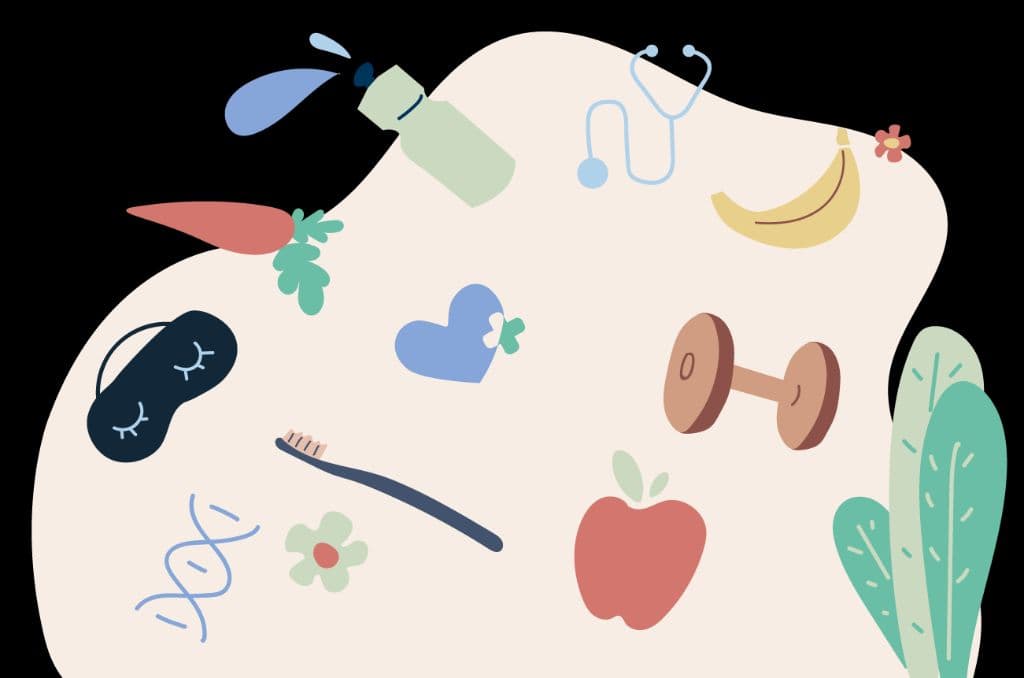This article is compiled by Savnee Shivalkar
Introduction
Water is the elixir of life. It’s composed of not only nourishing properties but also works magically once consumed. And one of the key reasons for its notability is that every system in your body needs water to survive. In fact, your body’s composition is essentially water-based i.e. 60% of your body weight is water.
We have all grown up to abide by the thumb rule – of having at least 8 or more glasses of water every day. Many of the recent researches have in fact suggested that women should get over 2.7 litres of fluids a day and men must consume more than 3.7lts. Over time, water consumption styles have evolved and tracking water intake through counting cups or glasses seems to have taken a back seat.
Knowing the correlation between water and hydration
Scientifically the term ‘hydrate’ is a chemical/substance that consists of water or its constituent elements. Hydration is a process that maintains the optimal levels of water in your body and constitutes it across your body systems. Not only drinking water but even the consumption of any edible substance that is high on the water is meant to hydrate the body. That means the water requirement is fulfilled not only through directly drinking it, but also through tea, juices, fruits and other food items that we consume.
Importance of water and its effects on the human body
- Regulates body temperature: The sweat glands react to heat and bring water and salt to the skin’s surface. The water on the surface then evaporates from the skin and cools the body, keeping the temperature in a healthy range.
- Lubricates the joints: The joints are internally lubricated by a fluid called the Synovial fluid, which primarily is made up of water. This fluid is responsible for maintaining healthy joint tissues by reducing friction.
- Prevents infections: Drinking enough water keeps kidney function intact and helps to flush out the bacteria and toxins, thereby reducing the risk of unwanted infections such as urinary tract infections. It is also a major component of saliva and mucus, which keeps our mouth and gut tract clean and healthy.
- Regulates blood circulation: Our blood is 90% water. Water follows sodium into the blood resulting in less water excretion through urine and restoring the fluid balance in the blood and thus its volume.
- Delivers nutrients to cells: The water is absorbed by the intestines into the blood circulation and transferred throughout the body to perform various functions that keep us alive. They deliver several nutrients and oxygen to the body and excrete the waste materials.
- Responsible for the proper functioning of the organs: Water balances out the waste and acidic compositions in the body. And allows the cells, tissues and organs to regulate body temperature and other bodily functions.
- Flushes out toxins: Kidneys and the liver need water to eliminate toxins, byproducts and excess metabolites from our bodies and keep it utmost physiologically stable and healthy.
- Improves sleep quality, cognition, and mood: Lack of water can throw off the dopamine and serotonin balance in the brain. Dopamine and serotonin levels are responsible for controlling our moods. A glass of water can immediately calm your nerves and make you feel better.
- Keeps skin soft and glowing: Lack of hydration can give you dull and dry skin. Water improves the elasticity of your skin making it more plump and healthy. The minerals and nutrients in the water are quintessential in bringing that healthy and natural glow.
How much hydration do we really need?
While we have to bear in mind the minimum water intake limits as per our bodies, we have to be cautious that it’s neither over-consumed nor under-consumed. To not strike the right balance of hydration is as dangerous as dehydration itself.
One of the easiest and most efficient ways to know your body’s hydration levels is through urine colour. Experts consider it as one of the best indicators and suggest that morning urine colour can provide a glimpse of hydration status – if the urine is apple juice coloured instead of a lemonade colour, means you need more hydration. The lighter the urine colour, the better the hydration level. And frequently passing dark yellow urine connotes dehydration.
What is dehydration?
When the water is moving out of the system quicker than it is being taken, it creates a deficiency of the required nutrients. And when the fluid proportion is less in the body, dehydration is caused. While it is easy to go without food for days, to have to live a few days or even hours without water is simply impossible. Water is extremely crucial to keep our body working and alive. Dehydration only makes us weaker and more prone to infections, diseases, etc.
What causes dehydration?
- Loss of water in normal body functions, constantly in the form of sweat, urine, breathing and bowel movements
- Fluctuations in the blood pressure and consumption of diuretic medication that is commonly used to lower blood pressure
- Increased frequency of urination – which is a very common symptom in diabetics
- Lesser water and food intake than required – especially due to prolonged fasting
- Food poisoning that leads to severe diarrhoea, vomiting and high fever
- Extremely hot and humid temperatures
- Physical exertions due to prolonged physical activity or exercise
Commonly experienced effects/symptoms of dehydration
- Constipation – When your bowels are affected your body tries to absorb water back into the colon for functioning. Hence when we are constipated we tend to feel completely dehydrated.
- Dark coloured urine – Due to insufficient water quantity in the urine, the pigments get concentrated. The quantity of urine decreases and we often experience a burning sensation while urinating.
- Fatigue and reduced performances – Water is what keeps the energy levels in the body constant with oxygen and nutrient supply. When the body is low on these, we eventually cannot carry out our routine physical performances and experience fatigue.
- Inability to concentrate and dizziness – Water also balances the hormones and maintains optimum blood circulation in the brains, which are responsible for our moods and attention. And hence dehydration can cause a lack of concentration or dizziness.
- Mood swings – Dehydration causes overall irritability or confusion in the body resulting in frequent mood swings.
- Cold clammy skin – Especially the facial skin; is most affected due to dehydration. It loses its healthy and natural Ph balance and its texture changes.
In kids – one must watch out for symptoms like
- No tears while crying
- No wet diapers for as little as three hours
- A dry mouth and tongue
- Sunken eyes and cheeks
- Shrinking of the soft spot on top of the head
Other health effects of dehydration
- Salts get crystallized or precipitated in the urinary system, as urine volume reduces, therefore increased chances of formation of stones
- Low blood pressure due to reduced circulation
- Headaches and a triggered episode of migraines
- Confusion and reduced cognitive sense due to lack of blood and oxygen in the brain
- Dry mouth; low saliva - may cause bad breath and bacterial increase leading to gum and teeth problems
Rehydration is the foremost solution for dehydration - Quick consumption of plain water, ORS, any other oral rehydration solution or even lemon water with some salt and sugar are quick and easy ways to reverse the process.
Is the condition of Over hydration real?
Yes! It is also called Water Intoxication. Drinking too much water which your kidneys are not able to filter is a rare but real condition, where essential salts and electrolytes like Sodium become very dilute in the circulation.
This can occur due to :
- Too much water consumption orally and the kidney is not able to excrete it out so quickly and blood volume increases.
- Water retention due to a medical condition, like congestive heart failure, uncontrolled diabetes, and kidney diseases or medications like NSAIDs.
Colourless urine is a good indicator of overhydration. It usually presents as headache, nausea, vomiting and mental confusion or disorientation. If untreated may cause muscle cramps, seizures or unconsciousness, heart failure or even Coma.
Who is at risk of Overhydration?
Generally, it has been seen in those who are involved in extreme physical activities, as they are more likely to drink large amounts of fluids before and during an event. These include:
- Long-distance runners or marathoners
- Triathletes
- Hikers and mountaineers
- Endurance cyclists
It may also occur in those with kidney, liver diseases.
Best ways to hydrate
- Filtered pure water: It consists of no calories, has natural salts and minerals, is easily available and can be carried around throughout the day in a bottle
- Flavoured water in case you don’t like the natural taste of water; can be homemade by putting in fruit peels, lemon zest or cucumber slices in normal water
- Consuming fruits like lemons, berries, oranges, watermelons, strawberry, mangoes
- Eating veggies like cucumber slices, tomatoes, lettuces, broccoli
- Increased consumption of broth and soups in meals
- Occasionally drinking tea, coffee, green tea, milk - preferably low fat or skimmed and fruit milkshakes
- Including cooked lentils and curries as a part of your daily diet
- Always take a doctor’s advice about your optimum fluid requirement for your body type, if you are a long-distance and high-intensity athlete or sportsperson.
- Stay away from sugar-sweetened beverages such as soda drinks, energy drinks and vitamin waters - as these are unhealthy and provide empty calories.
- High caffeine content: These may act as diuretics that tend to expel water out of the body
- Alcoholic drinks: These tend to dehydrate even more
- Being in harsh sun for long hours: Especially for those residing in seaside regions, where humidity is also very high
- Avoid bathing in very hot water for long durations: Steam and sauna baths can take away the natural water from the body
- Drinking water after eating: Always have a glass of water before you begin eating to avoid eating extra. This also aids losing weight
- Excessive work out without proper hydration
Hydration v/s moisturization
Last but not the least, this is a very common misconception. While hydrating your skin requires you to add water to it, moisturizing your skin implies adding ingredients that lock the water inside. While they both go hand in hand, hydration is more of an internal process and moisturization is an external process.
If you only add water to your skin, it may temporarily feel plump. However, the water will escape from your skin if there is nothing to retain it. Hence moisturization is a crucial skincare process and involves adding ingredients that lock in the moisture and repair your skin’s barrier. This prevents water loss and improves your skin’s texture and health.
Bottom Line
So to conclude, we’d want you to also know that there are several apps that will not only track your water consumption but also keep reminding you to consume it in timely intervals. Using this external motivation can help you keep your hydration levels in check and prevent your body from any sorts of dehydration experiences.
Disclaimer - This information is provided for educational purposes and should not be construed as medical advice. Please consult with your healthcare practitioners before undertaking any changes in your diet or adding supplements.
Proactive is a digital clinic for women, offering accessible, personalized, and confidential healthcare solutions. We offer products and services for out-patient health concerns of Indian women, across their lifetime - from puberty to pregnancy to menopause. To know more on the sexual and reproductive health of women, visit https://www.proactiveforher.com/

